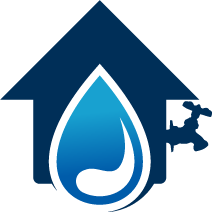Plumbing Problems: Is The Water Pressure Low In Your Home?
ShareIf it becomes extremely difficult to take a shower, use your faucets, or flush your toilets, the water pressure in your plumbing pipes could be low. Low water pressure isn't something you want to ignore. You could have a serious issue with one or more of your plumbing pipes and drains. Learn why the water pressure in your home is low and how you should handle it below.
Why Did Your Home's Water Pressure Plummet?
Every pipe in your home must maintain a specific amount of pressure to function properly. If the water pressure in your plumbing pipes plummets, there won't be enough water in your home to bathe, wash dishes, or even water your grass. The pressure in your plumbing system would be too low to maintain your home properly.
A variety of things cause low water pressure, including corroded, cracked, or broken water lines, plumbing pipes, and household fixtures. The damaged lines, pipes, and fixtures can leak water and lose pressure over time. You probably won't notice any issues with your plumbing or fixtures until they begin to act up.
The water leaving your taps, sinks, and bathtub will stream out instead of flow. You may need to flush your toilet several times before you can remove all of the waste from it. The toilet tank may also take a while to fill up.
The issues listed above are only some of the things low water pressure causes in the home. You solve the issues above by having a plumber increase the water pressure in your home.
How Do You Increase Your Home's Water Pressure?
Low water pressure can develop anywhere in your home. In order to find the cause of your low water pressure, a plumber will need to investigate every area of your plumbing system. The investigation may include:
- testing the pressure inside your water heater
- measuring the pressure inside your plumbing pipes
- examining the pressure inside your sinks, laundry machines, dishwasher, and bathtub
A plumber may also look for signs of leaking water in your wall cavities, floors, and ceiling. If a plumber discovers leaks and other issues during the investigation, they'll take immediate steps to fix them.
If a plumber doesn't find any signs of leaks in your home, they'll check the condition of your sewer line. A sewer line can lower the water pressure in your home if it cracks or clogs up. In this case, a plumber may need to fix the line before it becomes worse.
If you need to increase the water pressure in your home or repair something else in your plumbing system, contact a plumber for assistance today.

